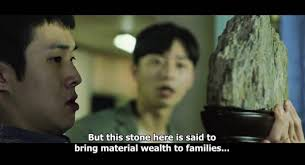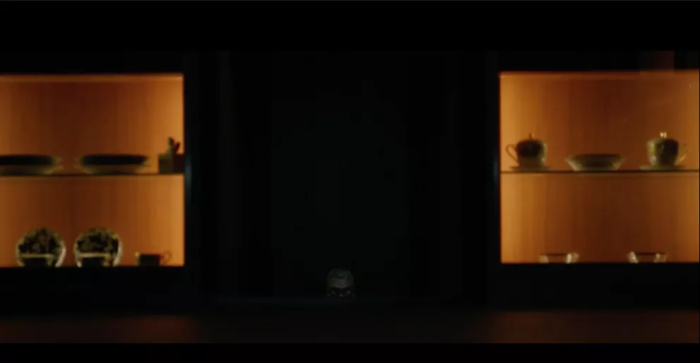By Kaya Miller
On October 5th, 2019, A celebrated foreign film was released in the U.S. where it quietly became a box office sensation. Then, on February 9th of this year, the voters of the annual Academy Awards surprised everyone in Hollywood by giving this international hit unprecedented recognition and praise.
CNN dubbed the night “historic” because Parasite received a whopping four Oscars In the categories of best picture, best production design, best foreign language film, and best film editing. Then, as icing on the cake, Korean director Bong Joon-Ho himself took home awards for “Best Director” and “Best Original Screenplay.”
.
To date, besides their Oscar wins, this quirky thriller has collected 11 major awards in all. So what exactly is this phenomenon about? The script synopsis tells us: “Greed, and class discrimination threaten the newly formed symbiotic relationship between the wealthy Park family and the destitute Kim clan.”
Parasite follows a struggling Korean family scheming to acquire jobs that will improve their quality of life; then shows how their actions come back to haunt them. The story begins in a very innocent, funny and resolute way.
Min, a family friend, gives the family a special object thought to bring wealth. After giving this gift to the family, Min also manages to secure the character Ki-Woo a position working in a wealthy household.
Ki-woo gradually uses this job as an opportunity to arrange employment for his whole family. The extremes they go through in this film to save themselves can be viewed as comical or reprehensible.
As the story progresses, the Kim family gets too comfortable in their new positions, and the fragility of their situation brings out primal and violent actions intended to keep them safe. Eventually, Each of the Kims get jobs; for instance, the mother becomes the house-keeper, the son becomes a tutor to Da-Hye Park, the daughter becomes an art tutor and therapist to Da-Song Park, and the father becomes the Park family driver.
Parasite ‘s director shows this change in status through the family’s perspective as we, the audience, watch them execute their ingenious plan.
Warning: SPOILERS AHEAD
At the end, when we see Ki-woo Kim in the hospital surviving the horrific climax of the film, we’re left to wonder how the aftermath of a surprisingly gruesome garden party went down. But not for long. After the hospital scene, the story jump cuts to a memorial for Ki-Woo’s sister, where their weeping mother Choong-sook stands with her son. The following cutaway reveals the fate of the father of the Kim clan, Kim Ki-taek. We see him forced to hide away from all human contact after his murder of Mr. Park. This transition from the shockingly violent party, to the quietly grim sequence of events that follow, is done in a surprisingly poetic way.
Watching this class drama unfold truly satisfied my desire for suspense and mystery. It kept me on the edge of my seat, hands over mouth, thirstily anticipating whatever came next. From the scene where Mun-gwang (former housekeeper to the Parks) was being deliberately “poisoned” (for lack of a better word), to her return—and the bloody attacks that followed—all of it was thrilling to watch.
I recommend this film to anyone interested in being perplexed by unexpected plot twists. It brilliantly mixes humor with cutthroat activities, yet manages to include a sense of tenderness or wholesomeness, even when key characters are faced with death, fear, despair, and the unknown.
Analysis:
In short, Parasite is a movie with many layers. As the character Ki-woo enjoyed saying during this film, it is “very metaphorical”. (If you are particularly interested in learning screenwriter/director Bong Joon-ho’s intentions behind making Parasite, check out the Vulture article about the film, by clicking on the link below.)
When my family and I watched this film together, we were actively trying to interpret the meaning behind it all. For instance, who exactly is the “parasite”? At first glance, you could say that the Kim family is the parasite, because they feed on the wealth of the Park household after their dismantling of the pre-existing staff allowed them to insert themselves.
One could also say the son, Ki-woo, was the parasite, or at least was the weakest link of the Kim family. It was due to his clumsiness that his family was seen and attacked. (Moreover, he was later found because he dropped their wealth rock.) On the other hand, I believed the title might refer to the rock itself, because the family became infected with hope after receiving a wealth stone. Perhaps their hope and desire for wealth ultimately led to the Kim clan’s downfall.
Where the director shows us the reality of poverty and bad luck in this film is heartbreaking. The gym, filled with those who had lost their homes, comes to mind. This relates to the scene in which the wealthy Parks find the rain to be beautiful—while the Kims fear it. It also clearly shows the difference between their classes and troubles.
I could continue describing the genius of this film, but that alone won’t convince you. You should just see Parasite for yourself to decide if it is worth all the acclaim and awards it has won.
https://www.vulture.com/2020/01/parasite-ending-explained-by-bong-joon-ho.html
https://www.cnn.com/2020/02/10/entertainment/parasite-oscars/index.html



